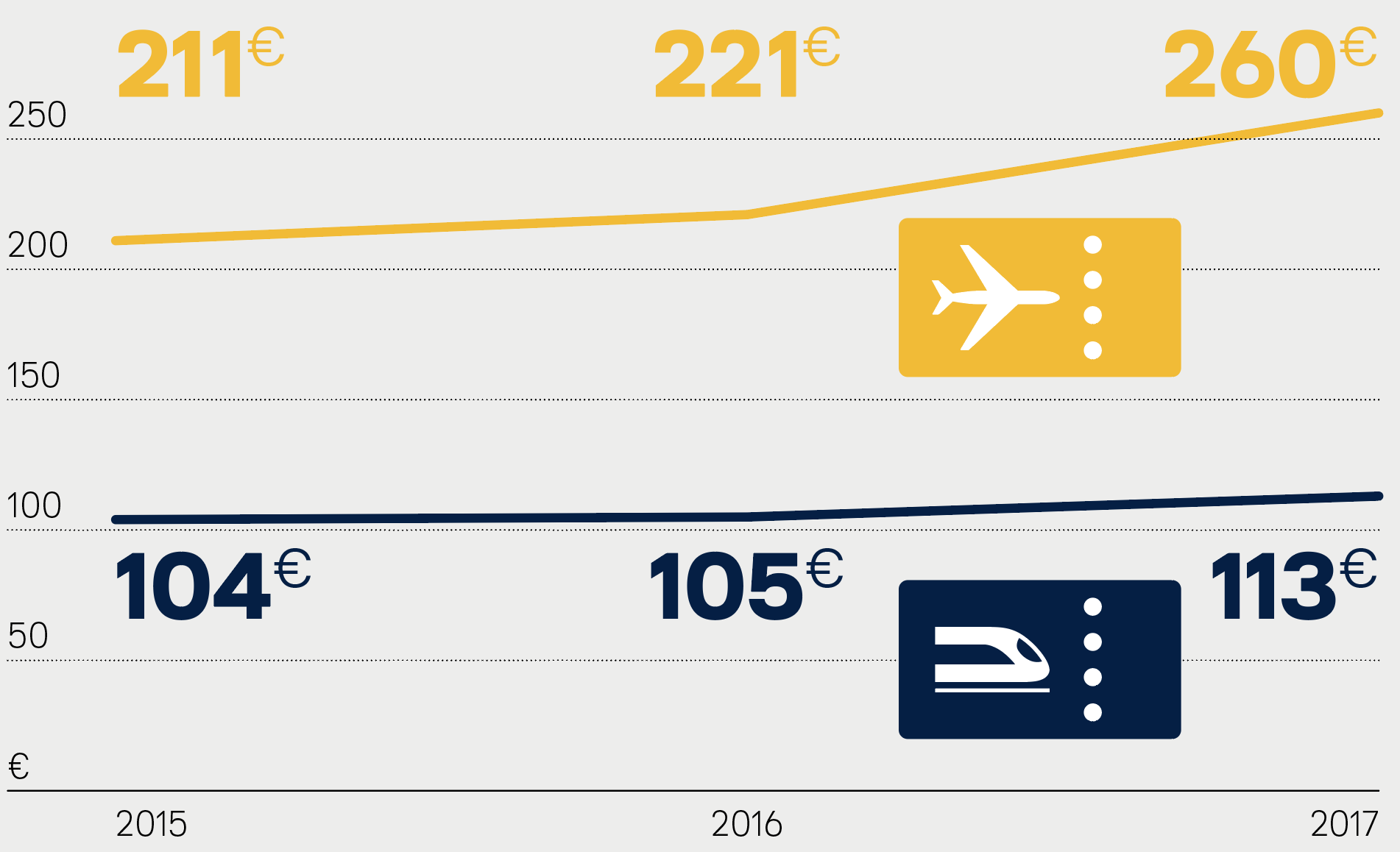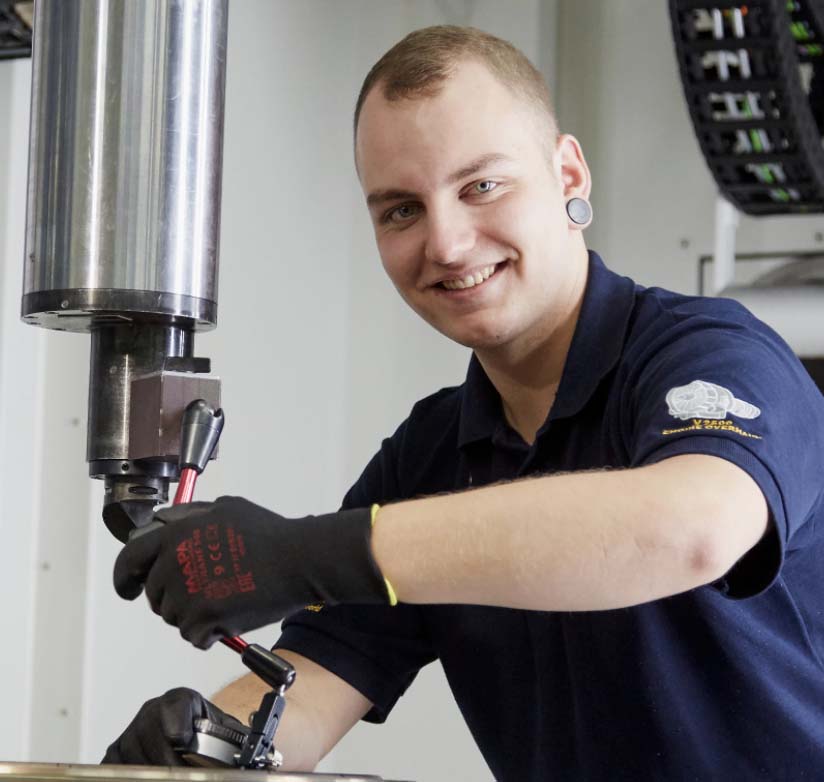Telegram
Topic overview
Price comparison: Flying more expensive than traveling by train
Medical treatment: ECG at an altitude of 10,000 meters
Reliability: Investments have paid off
Lufthansa Technik: Training offensive 2019
Price comparison
Flying more expensive than traveling by train
The market research institute Quotas undertook a comparison of rail and flight prices on behalf of the International Union of Railways UIC. Eleven routes between cities were selected, including Berlin – Frankfurt, Berlin – Munich, Stuttgart – Paris and Paris – Frankfurt. We quote the authors: “The results of our investigations contradict the commonly assumed price advantage of airlines in the perception of customers. With 514 simulated bookings, the rail service provided was significantly cheaper in all the periods included in our investigation – in more than 80 percent of cases.
Price advantage of rail travel is increasing

The academics took in each case three different types of traveler as a basis for their study – business travelers, weekend travelers and holidaymakers – as well as various different points in time for making the booking, ranging from one day before the journey to eight weeks before traveling. Here are the overall results:
Price advantage of rail travel is increasing

The academics took in each case three different types of traveler as a basis for their study – business travelers, weekend travelers and holidaymakers – as well as various different points in time for making the booking, ranging from one day before the journey to eight weeks before traveling. Here are the overall results:
Source: Quotas
Medical treatment
ECG at an altitude of 10,000 meters
Experiencing acute heart problems when you are high above the clouds, far from a hospital or a heart specialist, is something you wouldn’t wish on anyone. Lufthansa is now improving the medical care they can offer in emergency situations such as these – Lufthansa is the world’s first airline to have fitted all their long-haul aircraft with a mobile ECG system.
The intuitively-designed system enables flight attendants with no specialist knowledge of cardiology to perform an ECG. Experts on the ground are available around the clock to evaluate the data and give the cockpit crew advice. Through the “Doctor on board” program run by Lufthansa, SWISS and Austrian Airlines, we can also quickly identify any doctors on board our flights, along with details of their specialist areas. There are currently more than 11,000 doctors enrolled onto the program.
Reliability
Investments have paid off
The airlines of the Lufthansa Group have once again provided a more reliable service this summer – despite some continuing bottlenecks in our infrastructure, both on the ground and in the air. To achieve this, the Lufthansa Group invested around EUR 250 million in the stabilization of its flight operations, for example through the use of more reserve aircraft and through a diverse range of further measures, such as the lengthening of ground times in order to create additional buffers. This has paid off – our level of reliability this summer stood at 98 percent.
Lufthansa Technik
Training offensive 2019

Around 250 new apprentices and students on ‘dual’ degree courses are starting at Lufthansa Technik in 2019. In comparison with the previous year, this is an increase of 55 percent. The company will be creating a further 50 training places for 2020 – good perspectives for young people and for Germany as a centre for aviation.